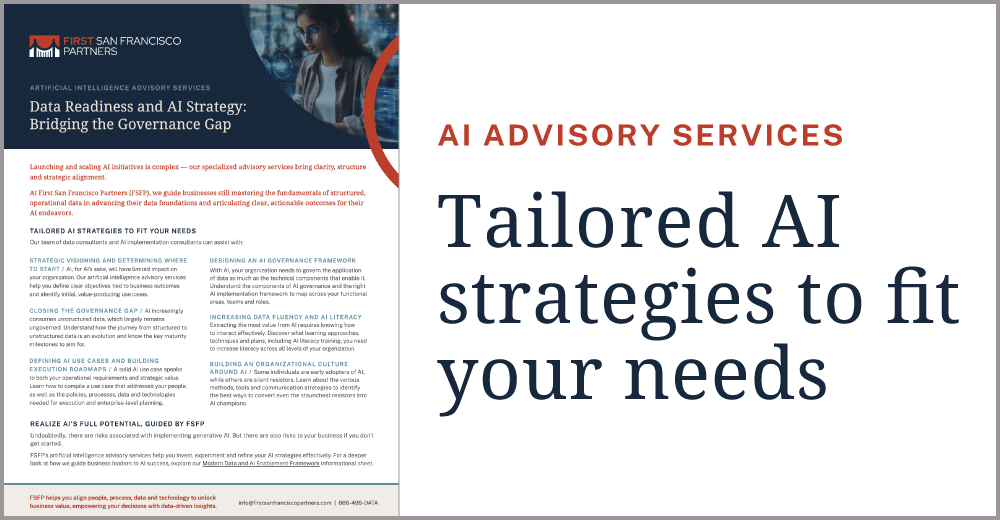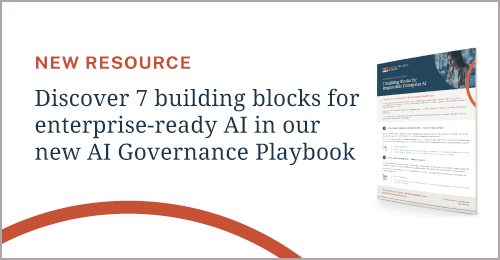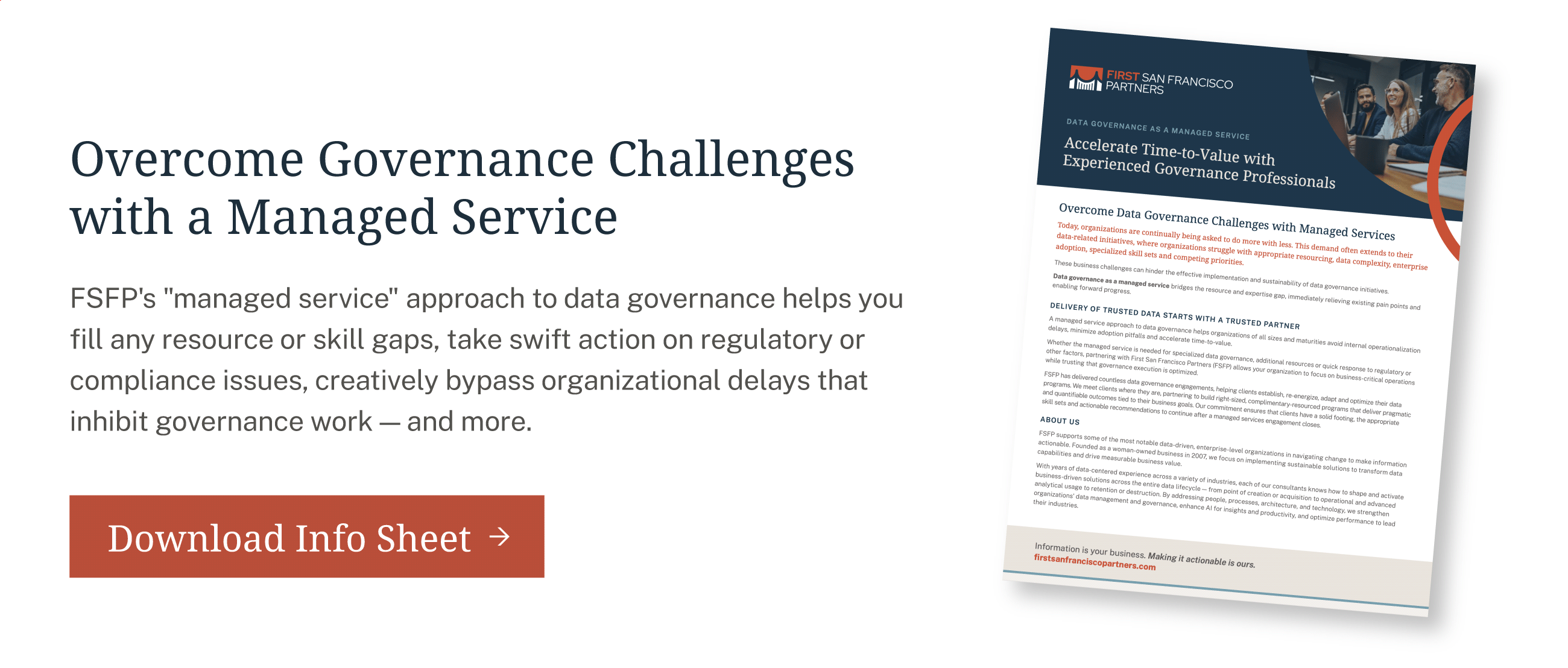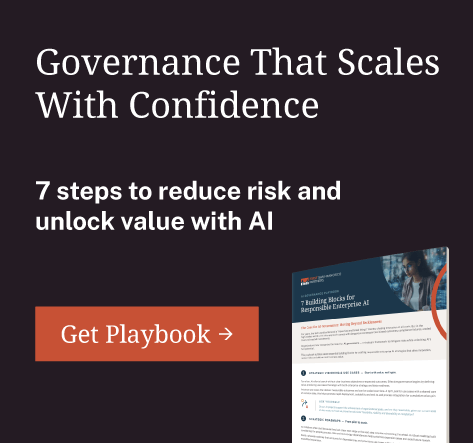“Metagovernance” — or governing governance — is a concept that our Chief Innovation Officer Malcolm Chisholm has been discussing with our clients, particularly those who are using Collibra’s data governance platform. We asked Malcolm for an overview of the metagovernance concept, and here’s what he had to share.
Why is metagovernance important?
Companies that have a data governance program in place and are using a tool, like Collibra, are typically ahead of the game, compared to companies who are still dependent on a governance “single point of failure” (such as an individual person) and spreadsheets or less-complex tools. Even though Collibra is at the core of governance — the behind-the-scenes engine — it’s still important to govern Collibra.
What is metagovernance?
Simply put, metagovernance is governing governance — the processes, standards, tools, etc., an organization uses. Any governance tool or governance organization, for that matter, must be governed in some way for it to show true value to an organization.
What role does metagovernance play to ensure the highest probability of success for Collibra?
Governing Collibra helps ensure that any decisions about what you do in Collibra are fully vetted by the governance area and company stakeholders vs. being done in an ad hoc or a non-transparent way. Governing governance helps to ensure that everything that’s being added to and managed by Collibra (or another governance tool) is being done in an accurate, clear, consistent and even ethical manner.
What's involved in Collibra metagovernance?
First, there’s an organizational mindset to metagovernance — that is, a willingness to recognize that governing Collibra is as critical as just implementing it. Then, developing a metagovernance framework, for example, roles and responsibilities for who’s going to design the configurations and who’s actually going to implement them.
What this framework consists of is a set of processes. There are all kinds of processes needed apart from configuration. For instance, periodic, regular verification of the data that data stewards are managing — are the same stewards still managing it, have there been any changes in definition, usage, classification, and so on. In this way, the metagovernance processes keep the information in Collibra reliable, reduce risk and improve efficiency.
What deliverables are part of FSFP's Collibra metagovernance scope?
As part of our Collibra consulting practice, we advise clients on governance best practices and show them how to customize and implement these at their organizations. Part of this involves methodologies we have created to improve adoption of Collibra. For instance, we have checklists and templates for setting up community structures in Collibra, which is a task that is easy to do but also easy to get wrong.
Another template FSFP developed is a standard graphical notation for representing Collibra Asset Models. This enables our clients and consultants to quickly develop diagrammatic representations of what will be implemented in Collibra, which can be used to gain user sign-off. This shortens iteration cycles and ensures all stakeholders are aligned.
What fundamental processes involved in Collibra are captured in the scope of metagovernance?
Setting up the configuration, how to decide who has what responsibilities and how to make those decisions (like who’s going to be a subject matter expert or data steward) and also decisions about the operating model, i.e., the responsibilities of the data governance program office.
How does metagovernance accelerate Collibra out of the box to steady-state operations?
Without metagovernance, you may get cycles of organizations configuring Collibra without a big picture to guide them and without knowing who is doing what. With metagovernance, everyone knows their roles and responsibilities, rather than people trying to do everything themselves or interfering with the work of others. Also, people tend to focus on what they are working on today and not realizing how that must dovetail with what is already in Collibra. The result can be duplicate work and disconnects that can be significantly mitigated with disciplined metagovernance.
What’s the biggest benefit to an organization focusing on metagovernance?
You’ll use Collibra more efficiently. Your investment in it will be optimized. And it’ll be easier for everyone in the organization to interact with the data and the related standards. Above all, however, you will drastically reduce the risks of errors that can be made inside Collibra. Once a mistake is made and is rolled out to the enterprise, it is very difficult to take it back. Metagovernance will help you to avoid getting into this situation.
Array




